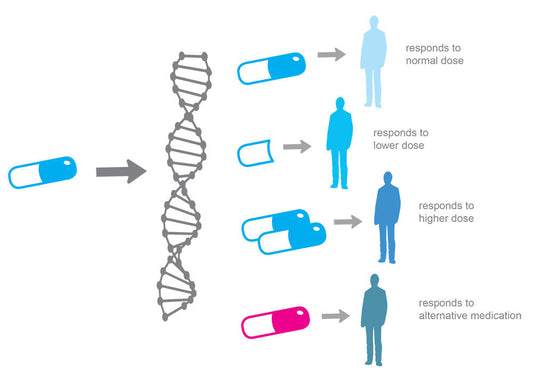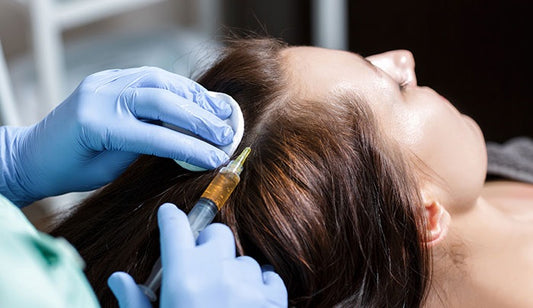Understanding Androgenetic Alopecia: A Genetic Perspective
Androgenetic alopecia (AGA), widely known as male pattern baldness or female pattern hair loss, is a prevalent condition affecting millions globally and often leads to significant distress. The traditional treatments, such as minoxidil and finasteride, offer varying degrees of success, underlining the necessity for customised treatment approaches.
The Genetic Underpinnings of AGA
Recent advancements by Fagron Genomics have shed light on the genetic factors contributing to AGA. A comprehensive study involving 26,607 patients has revealed crucial links between specific genetic markers and the susceptibility to AGA. This research highlights the importance of genetic predisposition, hormonal imbalances, and metabolic pathways in understanding this complex condition.
Key Discoveries in AGA Research:
- Vasodilation and Treatment Response: Genetic variations in PTGES2 and ACE, which are involved in vasodilation, have been identified as influential in the response to treatments like minoxidil. This finding paves the way for targeted therapies that enhance vasodilation mechanisms in AGA patients.
- Testosterone Metabolism Variations: The study also found that alterations in genes such as SRD5A2, which affect testosterone metabolism, could influence the effectiveness of drugs like finasteride and dutasteride. These insights are crucial for predicting treatment outcomes and tailoring therapeutic approaches.
- Prostaglandin Signaling: Significant associations were noted in genes related to prostaglandin receptors, such as PTGFR and PTGDR2. The role of prostaglandin signaling in hair growth regulation suggests new potential targets for developing treatments.
Towards Personalized AGA Treatment
These genetic insights are integral to developing personalised treatment strategies. Fagron's commitment to research continues to explore and validate these genetic associations, aiming to refine treatment options for AGA.
Introducing TrichoTest™ and TrichoConcept™
To further support patients with AGA and other hair-related issues, Fagron has developed TrichoTest™ and TrichoConcept™. These innovative solutions combine detailed genetic analysis with patient history and potential contraindications to recommend the most suitable treatment modalities, including topical applications, oral medications, and mesotherapy.
The analysis incorporates 26 polymorphisms associated with metabolic pathways, along with an extensive review of the patient’s medical history, emotional state, lifestyle habits, and family health background, ensuring a truly personalised treatment plan.
Explore the Full Study
For a deeper understanding of our findings and their implications on the treatment of AGA, we invite you to read the complete study available on the Fagron Study Platform.
This convergence of genetic research and clinical dermatology marks a significant step towards more effective, safer, and personalised treatment options for those suffering from AGA, heralding a new era in hair loss management.


















